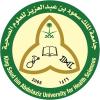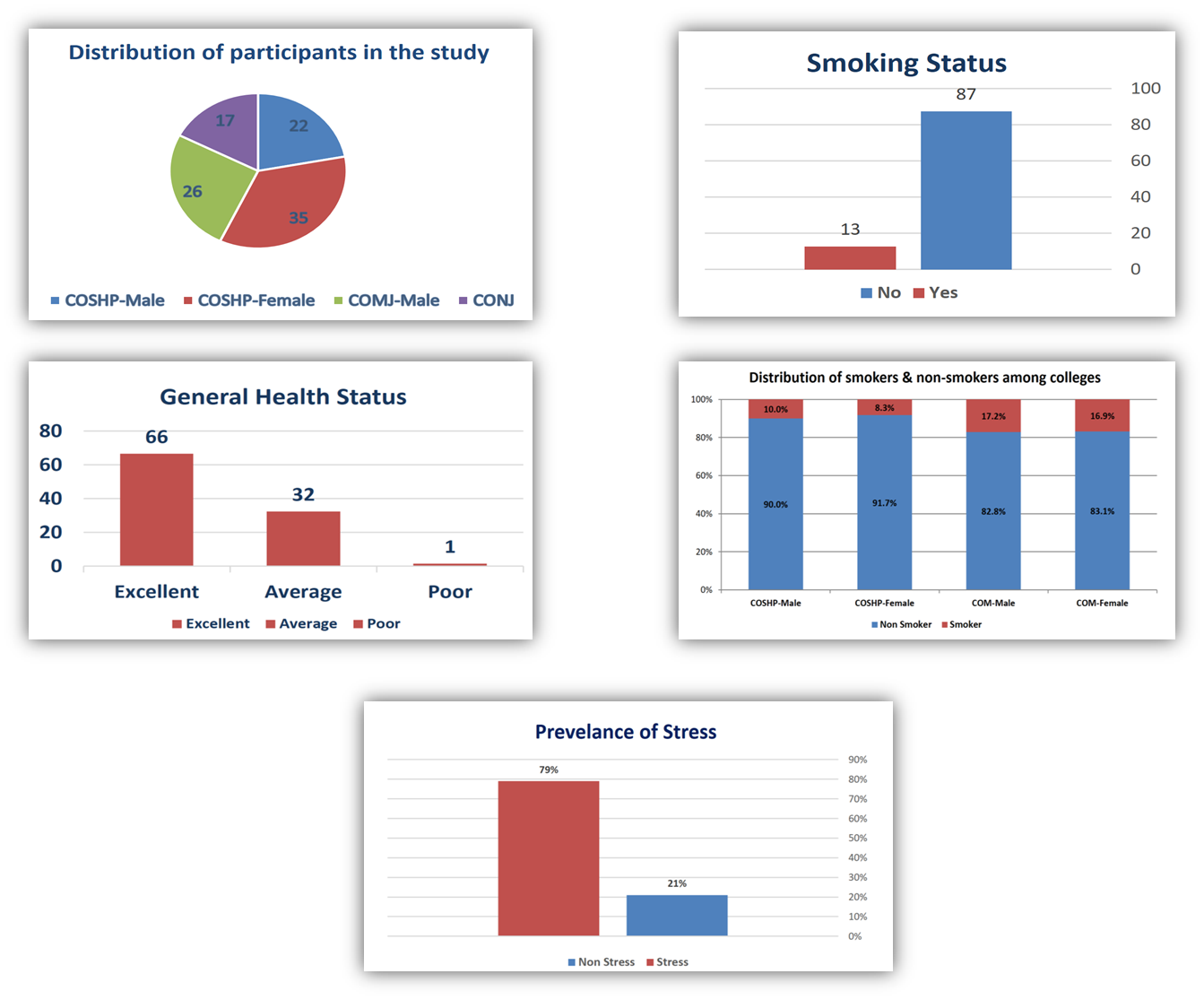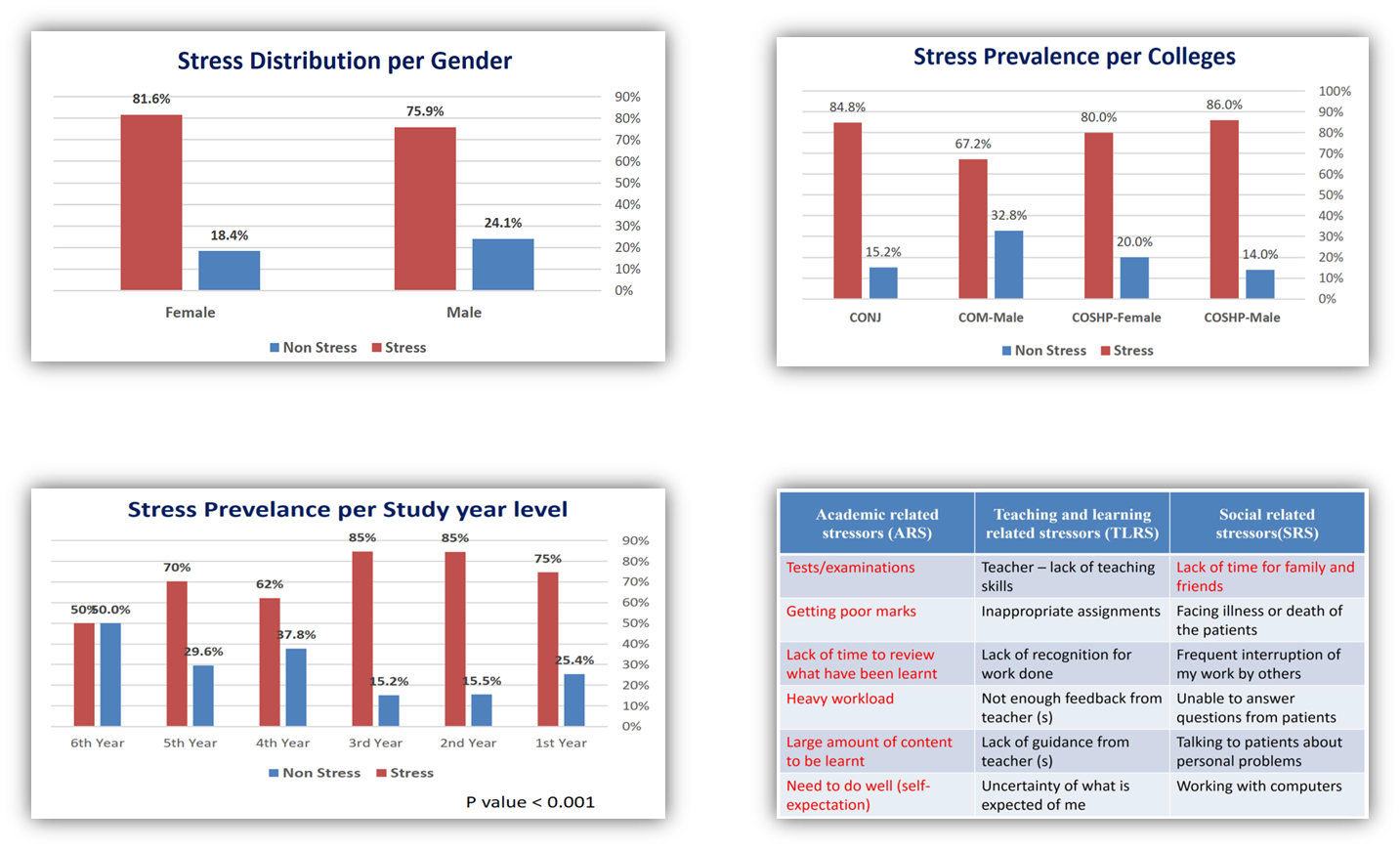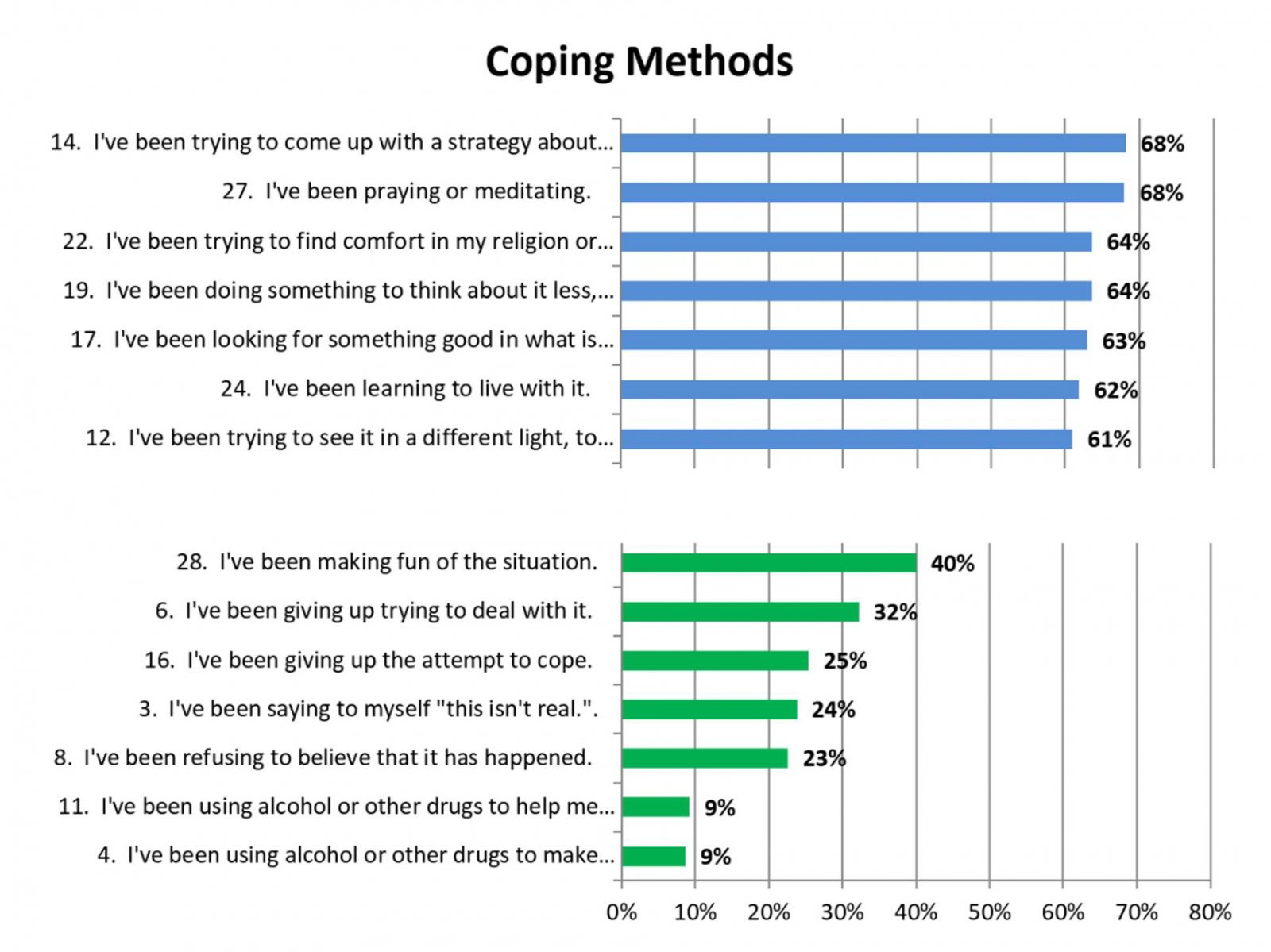
|
Authors | Institution |
|
Dr. Areej Alowfi Dr. Wesam Abuznadah Dr. Hatim AlJifri Dr. Anwar Khan |
NGHA, KSAU-HS College of Medicine, King Saud Bin Abdulaziz University for Health Sciences, Jeddah , KSAU-HS Address: P.O.BOX 1782 Jeddah 21441, Saudi Arabia. Email: owfias@ngha.med.sa |
 |
|
||||||
| Prevalence of stress and coping strategies among King Saud Bin Abdulaziz University for Health Sciences KSAU-HS undergraduate students in Jeddah, Saudi Arabia |
Introduction:
Stress prevalence among medical students is estimated in literature references as cited by Yusof et al to be in the range of 21%-56% in different countries worldwide.1 Local national studies estimated higher figures approaching 72% in nursing students of KSAU-HS in Jeddah.2 Stress is confirmed to cause comorbidities if left untreated and students have shown different coping strategies to cope with stress.
Aim:
To estimate prevalence of stress among undergraduate students at KSAU-HS in Jeddah during the academic year 2015/2016 and to identify any academic or social factors associated with stress as well as coping strategies.
Objectives :
1. To determine prevalence of stress among undergraduate KSAU-HS students in Jeddah during the academic year 2015 using General Health Questionnaire (GHQ) and determine possible sources of stress using Medical Student Stressor Questionnaire (MSSQ).
2. To compare prevalence of stress among students of different study years and different colleges at KSAU-HS.
3. To determine coping strategies used by students using Brief Coping Orientation of Problem Experienced (COPE) Questionnaire.
Methods:
The study was a cross sectional study conducted in KSAU-HS in Jeddah at following colleges: College of Medicine, College of Nursing and College of Science and Health Professions. Total of 1441 students were eligible. The calculated sample size was proportional to colleges (405 students). Paper format questionnaire was distributed after IRB ethical approval and authors permission to use the validated questionnaires “GHQ-12, MSSQ and COPE’ . It was self-administered questions in Likert scale format. Data entry and analysis using SPSS version 22.0. For descriptive analysis, frequency, percentage and charts were used for displaying the outcomes. Mean and standard deviation were estimated for quantitative variables like age , monthly income and tables/box plot were used to display their results. For inferential statistics independent t-test was used for comparing two numerical variables and chi- square test was used for the comparison of categorical variables. p-value <0.05 will be taken as significant.


Results:
Stress prevalence is estimated to be 79% with significant difference among students per colleges and study year level. Female students scored slightly higher stress prevalence compared with male students. Academic and teaching related stressors were found to score the higher sources of stress as well as lack of time for family and friends. Smoking prevalence among students was found to be 13%. Mostly used coping strategies were mainly cognitive and spiritual and spending time to enjoy hobbies. The least to be used are ignorance and using drugs to escape from stress.

Discussion:
Prevalence of stress is very high compared with other international studies; There was no significant gender difference. The study identifies academic stressors as dominant sources similar to other studies.
Recommendations:
1. Conduct a national study to include all KSA universities.
2. Establish regular mandatory students stress management courses.
3. Activate students wellness center in KSAU-HS Jeddah.
4. Faculty enhancement programs on communication skills and constructive feedback.
1. Yusoff MS, Yee LY, Wei LH, Siong TC, Meng LH, Bin LX et al. A study on stress, stressors and coping strategies among Malaysian medical students. Int JStud Res. 2011;1(2):45-50.
2. Abdulghani H, AlKanhal A, Mahmoud E, Ponnamperuma G, Alfaris E. Stress and its effects on medical students: a cross sectional study at a college of medicine in Saudi Arabia. J Health Popul Nutr. 2011;29(5):516-522.
 Send Email
Send Email
